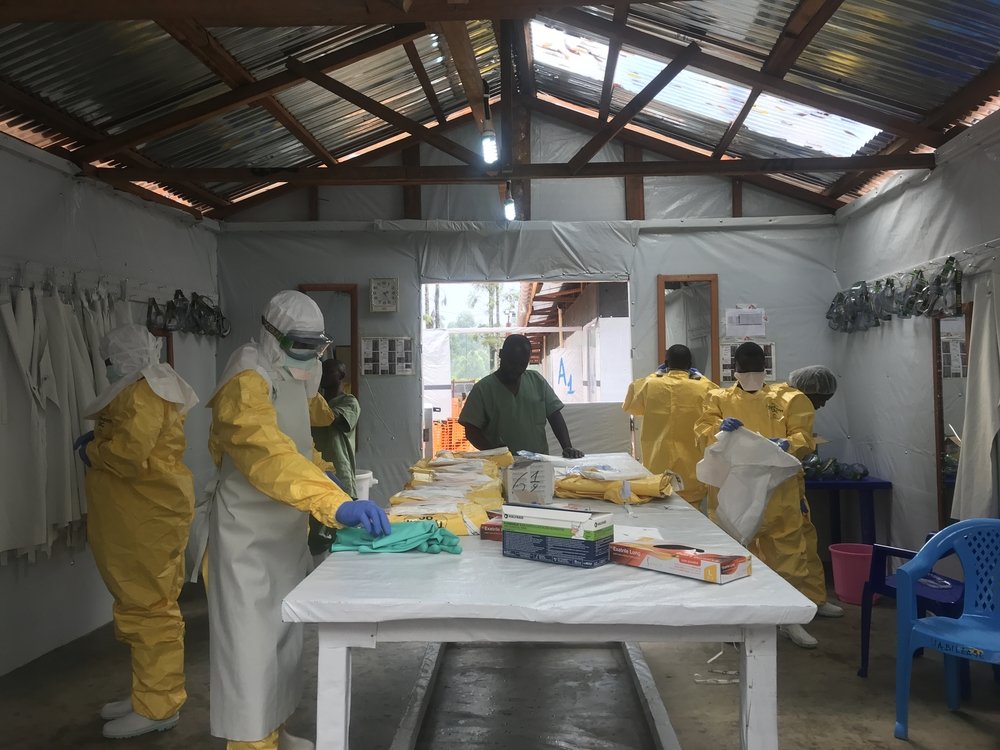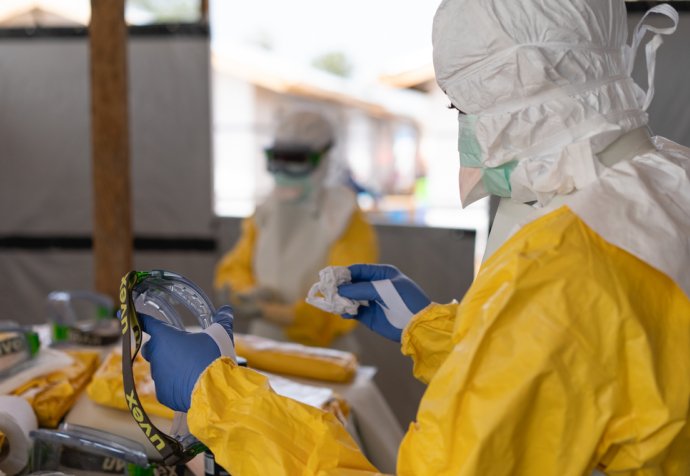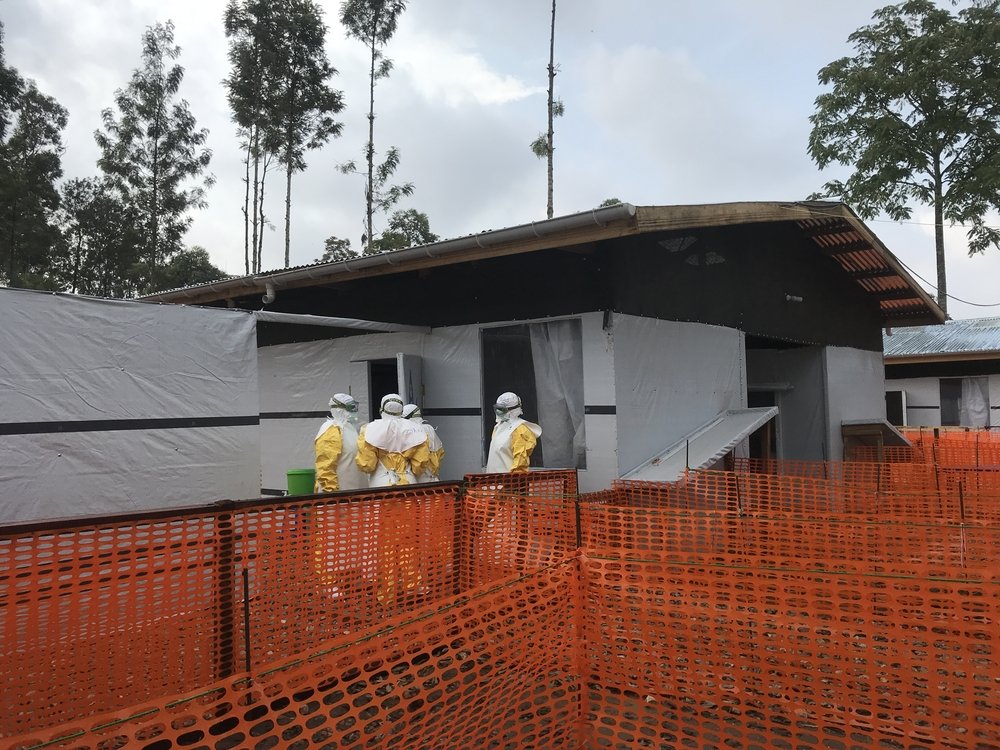As the number of new confirmed Ebola cases keeps growing, a heightened climate of unrest linked to the presidential elections has further restricted the population’s access to healthcare in and around the city of Beni, where several health centres were damaged during protests. This is making the prompt identification of new Ebola cases more challenging, as remaining health centres become overloaded.
Ebola, DRC: MSF scales up patient activities amid growing tensions & decreased access
Almost six months after the declaration of the Ebola epidemic in north-eastern Democratic Republic of Congo (DRC), our response teams on the ground are still struggling to gain control of the outbreak. So far, 619 people have been infected with the virus and 361 have died in what is the second-largest Ebola outbreak on record since the virus was discovered in DRC in 1976.

The new treatment centre was opened on 04/01/19, responding to the outbreak of new Ebola cases in Katwa. It's located in the town of Butembo and covers the western part of this urban area which has about 1 million inhabitants. © Lisa Veran / MSF
“In this situation people might have no other choice than to seek medical help in health facilities that do not have adequate triage or infection prevention and control measures in place, which makes the risk of contamination higher,” says Laurence Sailly, MSF emergency coordinator in Beni. “We are talking about a population that has endured many years of conflict. On top of that, they are now faced with the deadliest Ebola outbreak the country has ever seen. The unrest of these past weeks adds even more to their plight by limiting their chances of finding adequate medical care.”

MSF staff at the Beni transit centre get ready for their round in the high-risk area. © Gabriele François Casini / MSF
Since the outbreak was declared on 1 August, MSF has been steadily scaling up patient care activities to tackle the increasing number of confirmed Ebola cases, most recently in the Butembo, Katwa and Komanda health zones. This includes the expansion of the Ebola treatment centre (ETC) in Butembo from 64 to 96 beds, the opening of a new ETC in Katwa – east of Butembo – and the opening of a transit centre in Bwana Sura in Komanda, Ituri province, where new hotspots have been identified.

The total capacity of the Katwa Ebola Treatment Centre will be 70 beds divided into several areas to accommodate suspected and confirmed cases. © Lisa Veran / MSF
“With more and more cases coming from the city of Butembo, which has a population of almost a million people, it was necessary to set up a second treatment centre very rapidly,” says Emmanuel Massart, MSF project coordinator in Katwa. “We are also addressing the need to gain the trust of the affected communities. We designed the Katwa treatment centre with the aim of offering greater capacity for patient care. Large windows allow our patients to see the faces of the doctors and nurses treating them and make family visits easier, reestablishing some of the human contact that is so hard to maintain in Ebola treatment centres”.
“With Ebola, treatment centres alone are not enough. Connecting with the communities and building mutual trust is key to get the outbreak under control”, says Roberto Wright, MSF anthropologist is Katwa. “We need to increase our efforts to engage the population as active participants in the fight against the outbreak. This includes listening to their broader needs. For instance, at the end of December, we distributed trauma kits to local health centres to help their response to potential outbursts of violence. Likewise our transit centres are not only there to identify Ebola patients and refer them for treatment, but also to ensure adequate care for other health issues, which is a clear need for this population.”
